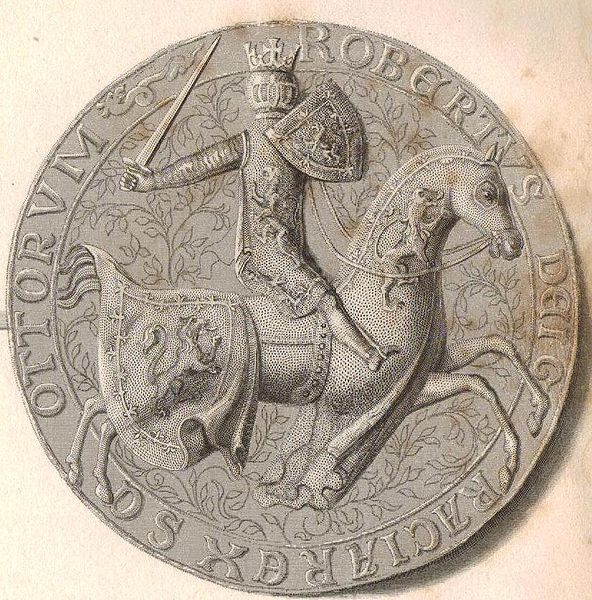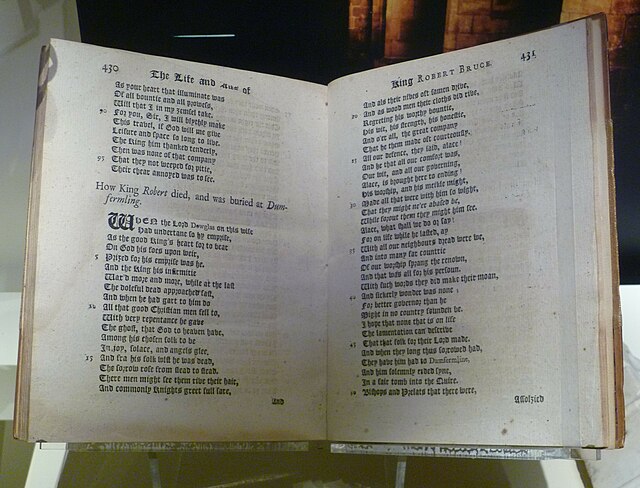The Brus, also known as The Bruce, is a long narrative poem, in Early Scots, of just under 14,000 octosyllabic lines composed by John Barbour which gives a historic and chivalric account of the actions of Robert the Bruce and Sir James Douglas in the Scottish Wars of Independence during a period from the circumstances leading up to the English invasion of 1296 through to Scotland's restored position in the years between the Treaty of 1328 and the death of Thomas Randolph, Earl of Moray in 1332.
Image of the Bruce, the main focus of the poem
A, fredome is a noble thing, part of the most-cited passage from Barbour's Brus.
John Barbour was a Scottish poet and the first major named literary figure to write in Scots. His principal surviving work is the historical verse romance, The Brus, and his reputation from this poem is such that other long works in Scots which survive from the period are sometimes thought to be by him. He is known to have written a number of other works, but other titles definitely ascribed to his authorship, such as The Stewartis Oryginalle and The Brut (Brutus), are now lost.
John Barbour (poet)
St Machar's Cathedral, where Barbour was archdeacon.
Robert II of Scotland, Barbour's royal patron.
An 18thC edition of The Brus in the National Museum of Scotland






